BALTIMORE –The Zoo is celebrating the end of Fiscal Year 2021, a year of many successes within the larger confines of the COVID-19 pandemic. “Despite the many adverse impacts caused by COVID-19, The Maryland Zoo fared better than we expected during the fiscal year,” stated J. Kirby Fowler, Jr., president and CEO of The Maryland Zoo. “While it is certainly challenging to overcome the financial deficits stemming from the three months we were closed and the cancellation of several fundraising events, we are slowly adding staff to various departments, as well as bringing back popular programs and events that we could not hold last year.”
“Given the circumstances, we were thrilled to have 395,293 members and guests come through our gate – exceeding all but one year out of the last six years! We saw growth in areas such as membership and attendance at new, smaller events,” stated Fowler. “We know it was difficult for guests to get used to timed-ticketing and mask-wearing, but it was gratifying to see so many people coming out to spend time at the Zoo with their families.”
“Visitors also clearly saw the value in becoming Zoo members, with many guests buying memberships at the end of their visit,” continued Fowler. “And I would be remiss if I didn’t mention how much we appreciated the emergency support we received from the State of Maryland and the Federal government. Our compassionate donors also stepped up and provided much-needed operating funding in spite of their own circumstances during the year. We are truly grateful.”
Highlights from the fiscal year ending June 30, 2021
Accessibility –
- A new ADA accessible entry way from the Mansion House parking lot to the reception area was completed, and a new elevator was installed in the Mansion House
- The Zoo’s website underwent an accessibility review and was updated to ensure ADA compliance.
Animal births and acquisitions –
- The Zoo adopted Maisie, a one-month-old chimpanzee that was rejected by her mother at another Zoo. Maisie arrived in September 2020 and was hand-raised by the Chimpanzee Forest Team before being introduced to the Zoo’s troop in February 2021.
- Two male rhino arrived in November from a private facility and have been successfully introduced to the ostrich and zebra that share the African Watering Hole habitat.
- Ten African penguin chicks were hatched during the 2020-2021 breeding season.
- Two great white pelicans were introduced to Penguin Coast.
- Two red-tailed guenon were introduced to the Chimpanzee Forest.
- Two trumpeter swan cygnets hatched in the Farmyard.
- A male blue duiker, Kuruka, joined female Flower in the African Journey habitat.
- A male Western African slender-snouted crocodile took up residence in the crocodile habitat in Chimpanzee Forest.
Animal Experiences –
- New animal experiences were offered, designed to bring visitors closer to their favorite animals, including Penguin Fish Toss, Penguin Training, Giraffe Training, Tortoise Feeding and Goat Trek.
Attendance –
- 395,293 members and guests visited the Zoo, exceeding all but one year out of the last six years.
Capital Projects –
- The Leopard Habitat, which opened in 1995, underwent a complete renovation, including a major overhaul of both the behind-the-scenes areas and the public-facing habitat.
- The John L. Crise Fountain, presented to the City in 1870, had fallen into disrepair over the last century. The Zoo worked with Azola Building Rehab, Inc. and a number of local artisans to move and restore the Crise Fountain from a hidden glen to a prominent spot near the Waterfowl Lake Pavilion. Descendants of John L. Crise, Esq., the fountain’s original benefactor, funded the restoration.
- The Zoo’s original Elephant House in the Main Valley underwent an exterior renovation, including a new roof, stone repointing, and exterior painting.
- The habitat for the West African slender-snouted crocodile was renovated, including replacement of the large viewing window and making the land portion of the habitat area more functional for employees to work with the crocodile.
Conservation –
- The Zoo’s resident male snowy owl helped test a newly designed lightweight GPS/GSM tracking/transmitter unit. The Zoo’s Conservation and Bird teams, on behalf of Project SNOWstorm, fitted the transmitter “backpack” on the bird and monitored him over the course of several months to see if the device would cause any discomfort to the bird. He readily accepted the device, and the goal now is to fit the devices on any wild snowy owls that become part of Project SNOWstorm next winter.
- With conservation travel halted, the Zoo supported many of its conservation partners with monetary donations and continued in-house research projects, like the long-running Box Turtle Survey. Zoo teams were deployed all over the forested areas of the Zoo, seeking box turtles fitted with transponders to track their movements, as well as finding new turtles to add to the study.
- The Zoo’s Conservation Department began a new partnership this past spring and coordinated a staff clean-up of Otter Point Creek in Harford County, with the intention of providing more assistance with regional conservation partners in the future.
COVID-19 Safeguards –
- The Zoo implemented significant protocols to safeguard guests and reduce the likelihood of COVID-19 infection for guests, staff, and animals.
- Such measures included: capacity limits, online timed ticketing for admission, social distancing signage, closure and gradual re-opening of indoor venues, heightened cleaning protocols, one-way directional paths, and the installation of barriers to protect certain vulnerable species.
Education –
- The Education team revised in-person field trips and Zoomobile visits to create virtual offerings for Maryland school children. The Zoo hosted 342 virtual field trip programs serving 14,082 students and 130 virtual Zoomobile programs serving 7767 participants.
Events –
- With large, in-person events cancelled, the Zoo launched several new events and event series designed to be socially distant or for small family groups, including Brew Thru the Zoo, Wine in the Wilderness, Twilight Family Strolls, and Sip & Stroll Happy Hour tours. These programs took place after hours, allowing guests to see the Zoo in a truly different light.
- The Events Team revived a new-old favorite family holiday event, Zoo Lights. Zoo Lights spanned six weeks and offered drive-thru and walk-thru evenings for a half mile of glowing, festive animal-themed light sculptures, music, and hot cocoa.
Membership –
- The Zoo instituted a digital membership card, making it easier for members to register and renew while also reducing the Zoo’s use of paper.
Sustainability –
- Zoo employees, friends, and families participated in the Plastic Free Ecochallenge once again and came in first in the challenge for the third year in a row!
- Two additional water bottle refill stations were installed on Zoo grounds.
- The Zoo’s concession and retail partner, Service Systems Associates, began to remove single-use plastics from their daily operations, which included the replacement of all plastic bottles with aluminum bottles in vending machines.
- The Zoo partnered with BGE to install EVsmart electric vehicle charging stations accessible to the public. These are the first BGE EVsmart chargers to open in Baltimore City.
“As a non-profit, we always strive to increase revenue each year to support our operating budget. While there are always challenges, the COVID pandemic brought with it far-reaching consequences for everyone,” said Fowler. “Watching the staff pivot on an almost daily basis was amazing. I am now more than ever confident in our team and their ability to seek, as well as create, new opportunities for growth. I am looking forward to seeing what we can accomplish together over this next year.”

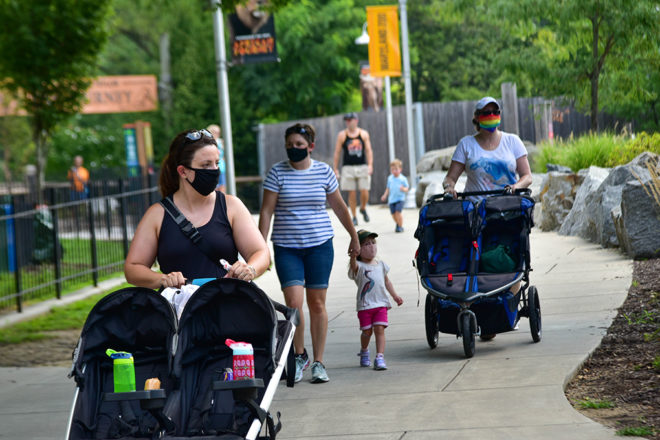
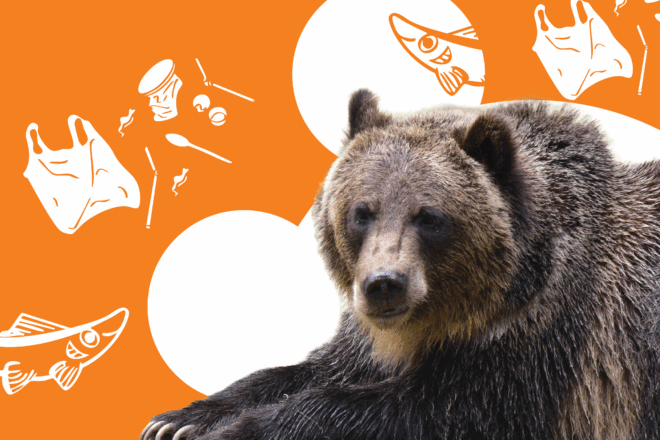
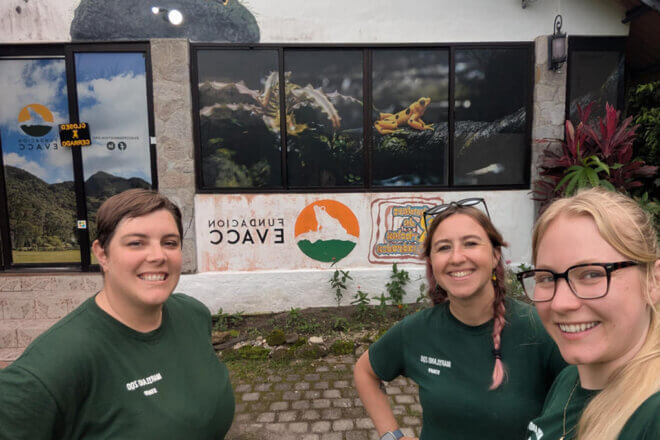
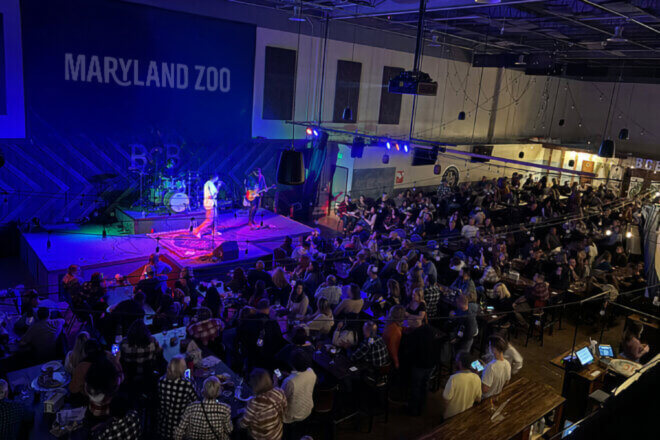
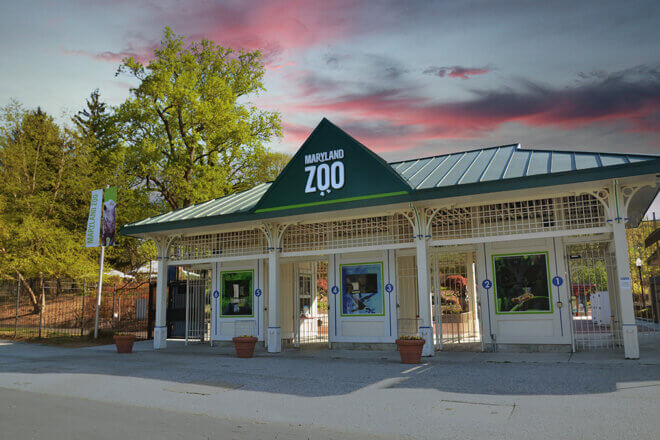
Share this article